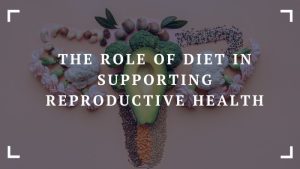
Step into the world of women’s reproductive health where knowledge is power, shaping the journey towards wellness and empowerment. From routine check-ups to fertility awareness, explore the pivotal role of understanding and care in this vital aspect of women’s lives.
Women’s Reproductive Health
Regular gynecological check-ups are crucial for women’s reproductive health as they help in early detection and prevention of potential issues. These check-ups can include pelvic exams, Pap smears, breast exams, and discussions about contraception and overall reproductive health.
Common Issues Impacting Women’s Reproductive Health
- Menstrual irregularities: Irregular periods can be a sign of hormonal imbalance or underlying health conditions.
- Polycystic Ovary Syndrome (PCOS): A common hormonal disorder affecting women of reproductive age, leading to irregular periods and infertility.
- Endometriosis: A painful condition where tissue similar to the lining of the uterus grows outside the uterus, causing pain and potential fertility issues.
- Sexually Transmitted Infections (STIs): Infections such as chlamydia and gonorrhea can impact reproductive health if left untreated.
The Role of Diet and Exercise in Maintaining Good Reproductive Health
Eating a balanced diet rich in fruits, vegetables, whole grains, and lean proteins can support overall reproductive health. Adequate hydration and limiting processed foods and sugars can also have a positive impact.
Regular exercise can help maintain a healthy weight, reduce stress, and improve overall well-being, which in turn can benefit reproductive health. Physical activity is also linked to better hormonal balance and menstrual regularity.
Contraceptives and Birth Control

Contraceptives and birth control play a crucial role in women’s reproductive health by providing them with options to prevent unwanted pregnancies and plan their families responsibly.
Types of Contraceptives
- Hormonal contraceptives: These include birth control pills, patches, injections, and hormonal IUDs. They work by preventing ovulation, thickening cervical mucus to block sperm, and thinning the uterine lining.
- Non-hormonal contraceptives: Barrier methods like condoms, diaphragms, and cervical caps, as well as copper IUDs, work by creating a physical barrier to prevent sperm from reaching the egg or altering the uterine environment to prevent implantation.
- Sterilization: Surgical procedures like tubal ligation and hysterectomy permanently prevent pregnancy by blocking the fallopian tubes or removing the uterus.
Effectiveness and Side Effects
- Hormonal contraceptives are highly effective when used correctly, with a failure rate of less than 1%. However, they may have side effects like nausea, weight gain, mood changes, and increased risk of blood clots.
- Non-hormonal methods have varying effectiveness rates, with barrier methods like condoms having a higher failure rate compared to hormonal options. Side effects are generally minimal but may include allergic reactions or irritation.
Importance of Education and Access
Contraceptives not only prevent pregnancy but also help in managing menstrual disorders, reducing the risk of certain cancers, and promoting overall reproductive health. Access to a variety of contraceptive options and comprehensive education on their proper use are essential in empowering women to make informed choices about their reproductive health.
Reproductive Health Education
Reproductive health education plays a crucial role in empowering women to make informed decisions about their bodies and well-being. By providing comprehensive sex education, individuals can better understand their reproductive systems, contraception options, and overall sexual health.
Key Topics in Reproductive Health Education
- The menstrual cycle and reproductive anatomy: Understanding the female reproductive system is essential for women to comprehend their bodies and health needs.
- Contraception methods: Educating individuals about various birth control options empowers them to make choices that align with their lifestyles and preferences.
- Sexually transmitted infections (STIs): Knowledge about STIs, their transmission, prevention, and treatment is crucial for maintaining sexual health.
- Pregnancy prevention and planning: Providing information on family planning, fertility awareness, and pregnancy options enables individuals to make informed decisions about their reproductive futures.
Impact of Societal Attitudes and Stigma
Societal attitudes and stigma surrounding reproductive health can significantly impact the quality and accessibility of sex education. Stigmatizing topics such as menstruation, contraception, and sexual health can lead to misinformation, shame, and barriers to seeking essential reproductive health services.
Fertility and Pregnancy Planning
Tracking menstrual cycles can be a valuable tool for fertility awareness and pregnancy planning. By monitoring the length of your cycles, the timing of ovulation, and changes in cervical mucus, you can identify your most fertile days and increase your chances of conceiving.
Preconception Health
Preconception health plays a crucial role in ensuring a healthy pregnancy. It involves making lifestyle choices, such as maintaining a healthy weight, quitting smoking, avoiding alcohol, and managing chronic conditions like diabetes. Taking prenatal vitamins with folic acid before conception can also help prevent birth defects.
Role of Healthcare Providers
Healthcare providers play a vital role in supporting women with fertility and pregnancy planning. They can offer guidance on preconception health, conduct fertility assessments, and provide personalized advice based on individual needs. Seeking regular check-ups and discussing any concerns with your healthcare provider can help optimize your chances of a healthy pregnancy.
End of Discussion

In a tapestry of insights and awareness, the discussion on women’s reproductive health comes to a close, underscoring the importance of education, support, and proactive healthcare in nurturing a healthier future for all women.
FAQ Section
How often should women have gynecological check-ups?
It is recommended for women to have an annual gynecological check-up to monitor their reproductive health.
What are some common issues affecting women’s reproductive health?
Common issues include menstrual disorders, infections, and hormonal imbalances that can impact reproductive wellness.
How can diet and exercise influence reproductive health?
A balanced diet and regular exercise can help maintain hormonal balance and overall reproductive well-being.





